Teach your students how to measure angles using a protractor with these 180° and 360° printable protractor templates.
Printable Protractor Templates for Your Classroom
Angles are everywhere around us. Learning how to draw and measure angles using a protractor is a fundamental skill in mathematics. However, there are lots of intricacies when it comes to using protractors effectively, and our students need lots of practice!
Students who are just beginning to learn this key mathematical skill might find using a real protractor quite challenging at first. That’s why our experienced team of teachers has created these 180-degree and 360-degree printable protractor templates to help support your students as they learn the necessary skills to use this mathematical tool effectively.
As they become more comfortable using the template, your students can confidently transition to using a real protractor for drawing and measuring angles.
How to Use a Protractor to Measure Angles
Looking for a foolproof method when it comes to teaching your students how to correctly measure angles using a protractor? Just follow the simple steps below, and your students will be drawing and measuring angles in no time!
- Explain the protractor’s graduations – Ensure the students understand that a protractor is a tool for measuring the size of angles in degrees (the unit of measurement for angle size). Each increment on the protractor represents 1° of angle size. The numbers written on the protractor are in ten-degree increments.
- Align the center hole – Show the students how to place the center hole of the protractor over the vertex of the angle being measured. The vertex is the point where the two rays of the angle meet.
- Align the baseline – Show the students how to align the baseline of the protractor with one of the lines of the angle. Make sure the center point alignment from the previous step does not move during this process.
- Read the measurement – The outside of the protractor has two arcs of numbers. Explain to the students that they must use the outer arc of numbers if the angle they are measuring opens to the left, and the inner arc of numbers if the angle they are measuring opens to the right.
It’s that easy to measure angle size using a protractor!
Download These Printable Protractor Templates
Use the Download button to access either the 180-degree and 360-degree printable protractor templates.
To reduce paper, you may wish to print the protractors two to a page.
More Measuring Angles Activities
Looking for more activities to help your students practice drawing and measuring angles with a protractor? Explore this great selection of teacher-created resources!
[resource:4848027] [resource:4960791] [resource:354872]
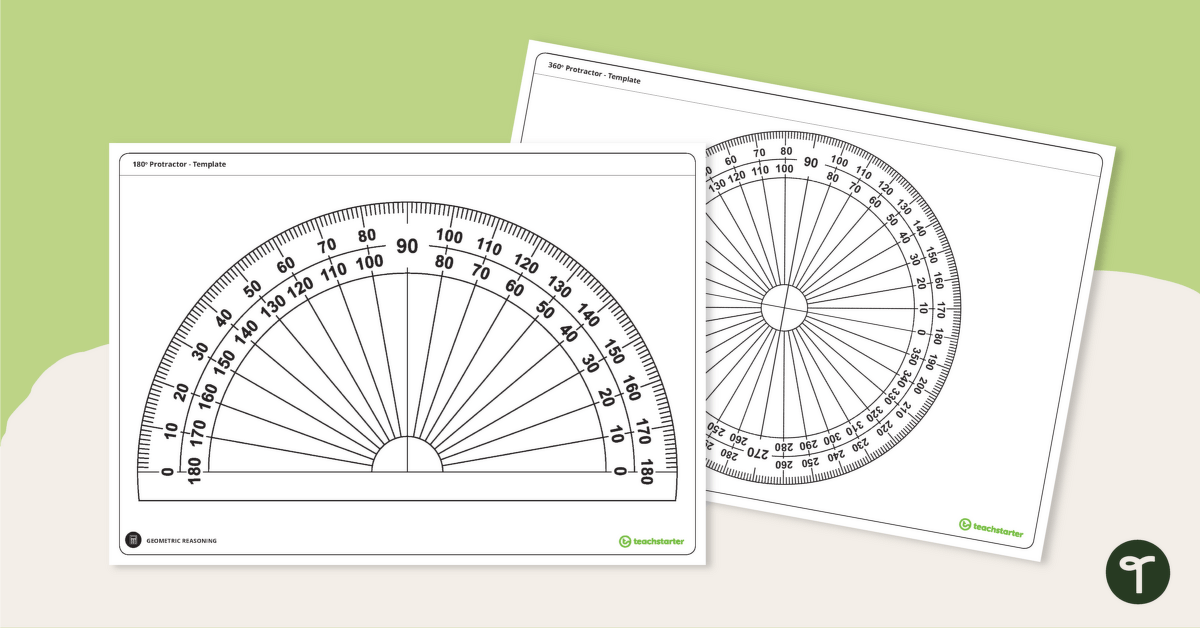

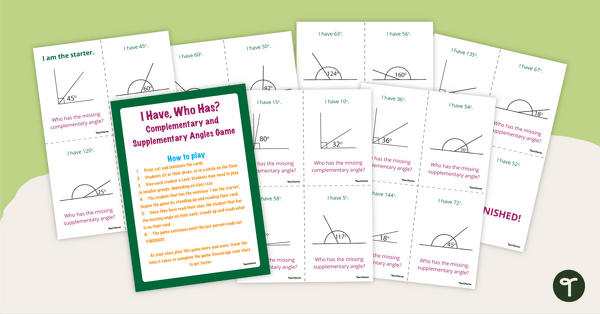
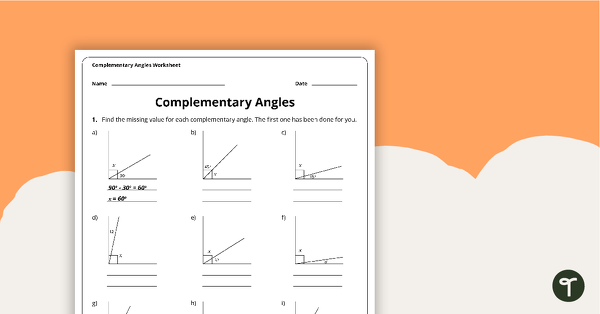
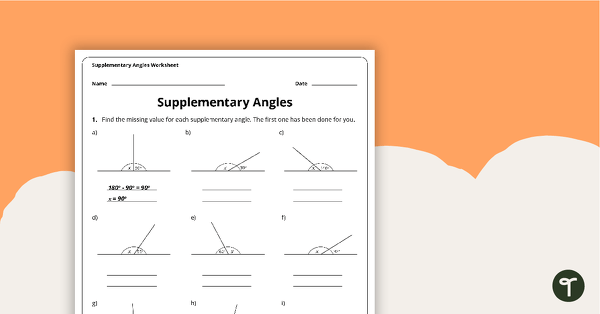
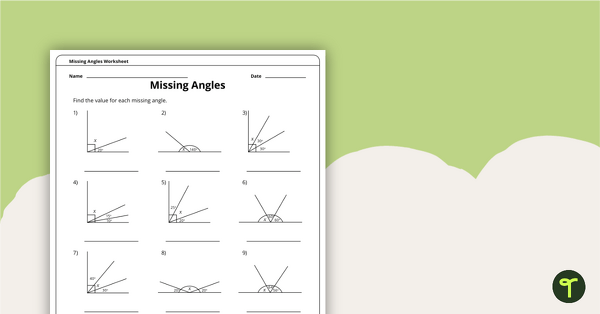
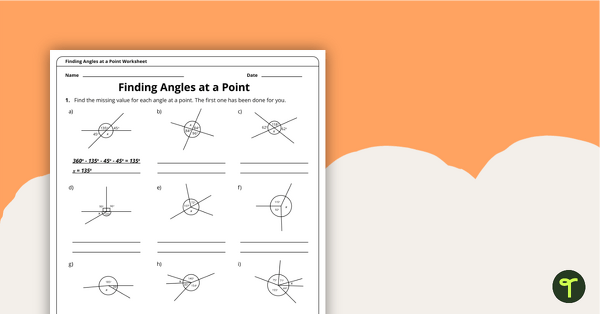
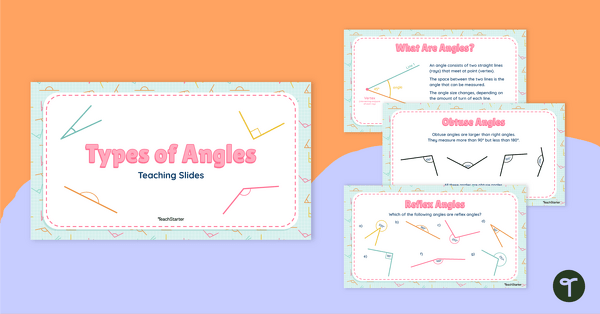
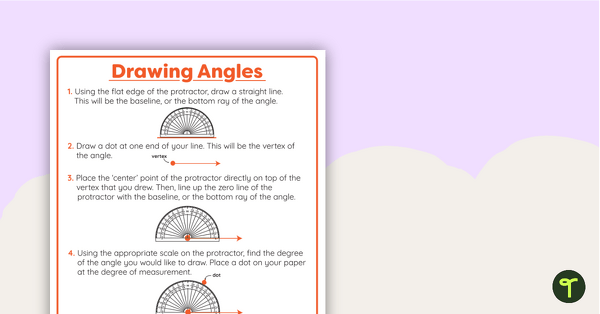
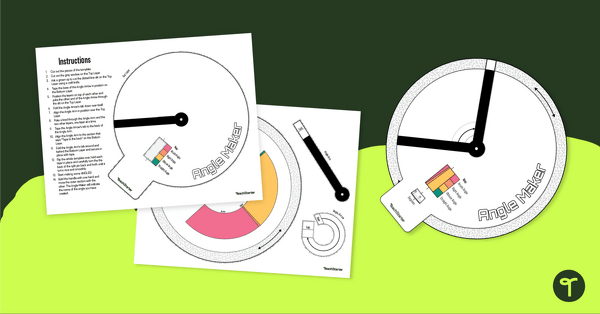
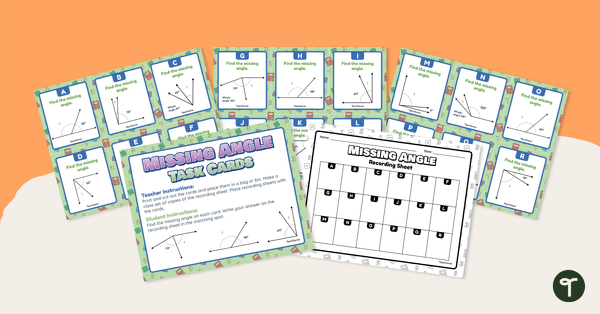
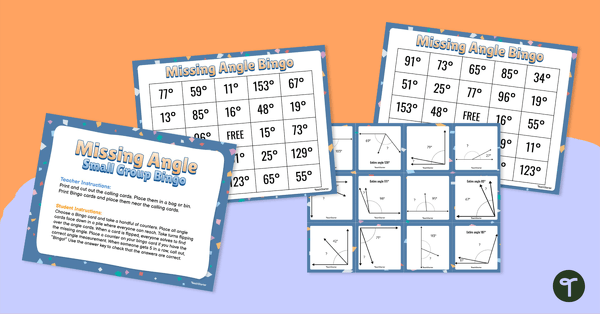
0 Comments
Write a review to help other teachers and parents like yourself. If you'd like to request a change to this resource, or report an error, select the corresponding tab above.